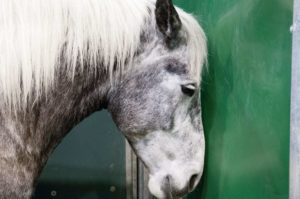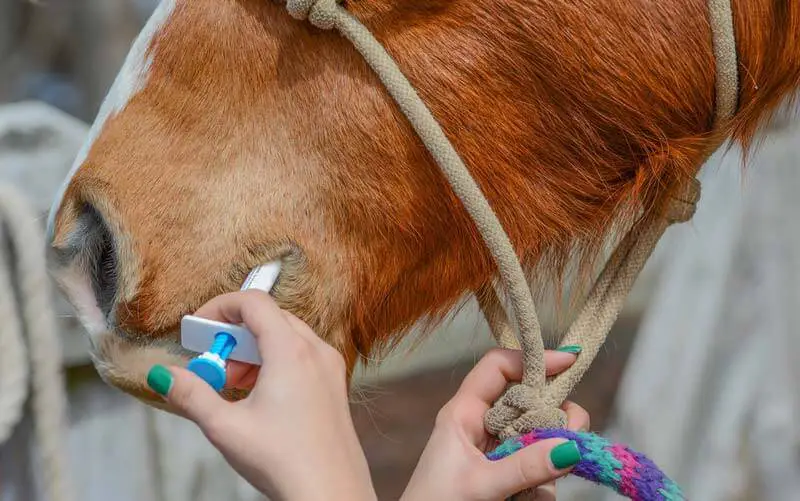
Just like us, horses too experience stress. If not recognised, stress can affect your horse’s health, wellbeing and performance. In this article, we identify common causes of equine stress and how they can be avoided.
Prior to domestication, horses lived in large herds and grazed up to 20 hours per day. As such, it’s not surprising that many horse management practices today create stress for our horses.
But first, let’s examine what stress actually is. Stress is typically described as a biological response to a situation perceived as threatening. Similar to humans, horses also experience the biochemical, physiological and behavioural changes elicited by stress.
Causes of Stress in Horses
Scientific studies into stress in horses utilise several methods to measure the stress response; namely, cortisol levels in blood, saliva or faeces, along with changes in heart rate. However, there are many scenarios we now understand to be inherently stressful to horses. These include:
- Feed: This includes the type, quality and quantity of feed provided and feeding practices. Any horse with a restricted diet, such as those kept individually stabled, will experience significantly higher levels of stress than horses kept within groups and allowed continuous access to forage.
- Reproduction: There are many aspects of breeding that can cause stress, including veterinary procedures, inadequate nutrition and weaning. Care must be taken when managing breeding stock to minimise stressful situations, and support their health and nutrition requirements.
- Transport: The risks of travel sickness, combined with the environmental conditions inside horse floats and trucks, can make transportation stressful to horses. Horses transported to competitions and sales have been shown to exhibit increased cortisol levels which must be managed.
- Exercise: It should come as no surprise that a high intensity exercise regime creates more stress than a low intensity workload. Every performance horse must receive correct nutrition and preventative health care, with their fitness built up gradually over time to reduce possible injury.
- Housing: As horses are innately social animals, social interaction is imperative to their health and wellbeing. Horses should be kept in groups to allow social contact, mutual grooming and other natural behaviours.
While this list is, by no means, exhaustive, it’s quite clear that any stressful situation can easily be avoided with simple management changes. The three F’s – forage, friends and freedom – are central to managing all horses used for pleasure and performance.
It is only with a focus on their wellbeing that we can expect long-term health.



